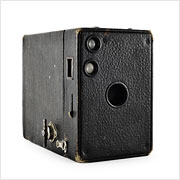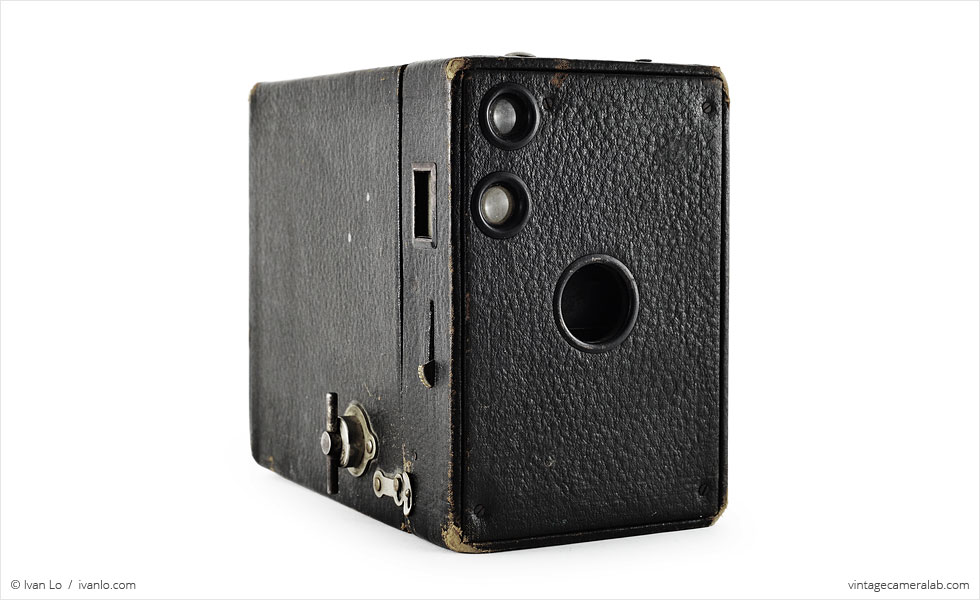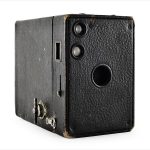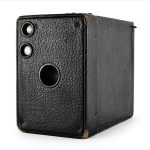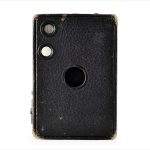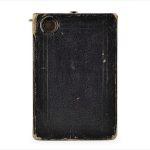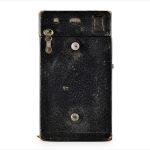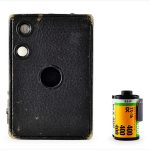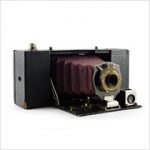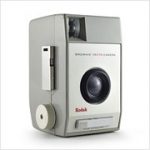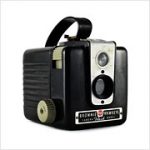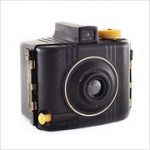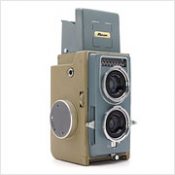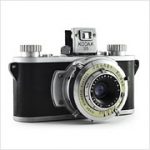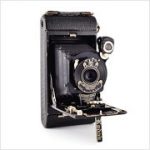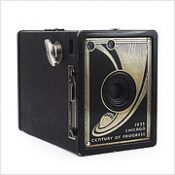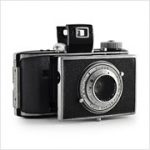Kodak No. 2A Brownie Model B Specifications
| Manufacturer: | Eastman Kodak Company |
| Origin: | USA |
| Made in: | Rochester, NY, USA |
| Introduced: | 1911 |
| Type: | Box, Viewfinder |
| Format: | 116 Film |
| Dimensions: | 8.9 x 13 x 15.7 cm |
Kodak No. 2A Brownie Model B Overview
The Kodak No. 2A Brownie Model B is a basic box camera made of thick, leatherette-covered cardboard introduced in 1911 by Eastman Kodak. The Model B is an early variation of the ubiquitous No. 2A Brownie which saw a production run from 1907 to 1933 with millions of units. Eventually, later versions of the No. 2A Brownie featured bodies made of aluminum instead of cardboard and saw the camera available in a variety of different colors.
Control-wise, the No. 2A Brownie doesn’t have much. Located on the user’s right hand side underneath the landscape orientation viewfinder window is the shutter lever which trips the rotary shutter at a fixed speed of 1/30. Next to the portrait orientation viewfinder window on the top of the camera are two metal tabs. The wider metal tab in the middle controls the aperture (f/8, f/11, and f/16) depending on how far up it’s lifted. The smaller tab activates the “Time” shutter speed which holds the shutter open for as long as the user desires. Once an image is taken, a winding key on the right hand side advances the film to the next frame. There are two hand strap lugs on the top and a frame counter window on the back. To load or unload film, undo the two metal clips on the top and next to the winding key and then pull the winding key out to unlock the body. Once unlocked, the entire front end slides out from the body to reveal the film.
Surprisingly, I got this Kodak No. 2A Brownie in the dusty basement of an antique mall out in the suburbs. I usually don’t bother with buying cameras from antique malls since they’re almost always priced outrageously high ($150 for a battered Canon AE-1, anyone?) but this one was only priced at $4 so I snatched it right up.
Find your very own Kodak No. 2A Brownie Model B on eBay.
McKeown, James M. and Joan C. McKeown’s Price Guide to Antique and Classic Cameras, 2001-2002. (Grantsburg, WI, USA: Centennial Photo Service, 2001), p 325.
